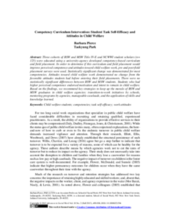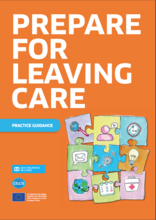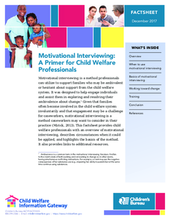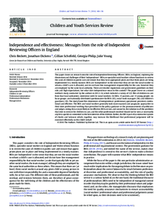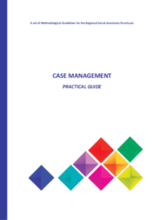Displaying 331 - 340 of 507
This study has reviewed existing literature on the definitions and components of social service systems and provides an analysis of data from key informants in the field of global social welfare.
This study evaluated a university-agency developed competency-based curriculum and field placement on child welfare for BSW and MSW students.
This analysis drew from a study in which child welfare professionals were interviewed about their definitions of “well-being” and the barriers and facilitators to promoting well-being in their daily practices.
This analysis drew from a study in which child welfare professionals were interviewed about their definitions of “well-being” and the barriers and facilitators to promoting well-being in their daily practices.
The present study is based on life mode interviews with social workers who started their careers in child protection services, focusing on their daily lives as newly graduated professionals.
This Practice Guidance, developed by SOS Children’s Villages International and CELCIS, seeks to promote improvements in practice that should have a positive impact for young people during and after the leaving care process. The contents of this Practice Guidance are in good part informed by a detailed Scoping exercise that was carried out in each of the five countries participating in this project: Croatia, Italy, Latvia, Lithuania and Spain.
This factsheet provides child welfare professionals with an overview of motivational interviewing, describes circumstances when it could be applied, and highlights the basics of the method.
Guided by the Cultural Competence Attainment Model, the purpose of this study is to examine how socio‐demographic and work characteristics are associated with variations in child welfare professionals' (CWPs) attitudes about father involvement and family instability and how these attitudes are linked with whether they view relationship and marriage education as relevant to their efforts to support families.
The paper draws on a mixed methods study the role and effectiveness of Independent Reviewing Officers in England.
This guide is designed for social workers employed in the social services addressed to families and children in Moldova. In this version, the case management methodology focuses on family strengthening and the development of family’s competences, with the ultimate aim of achieving every child’s well-being.

